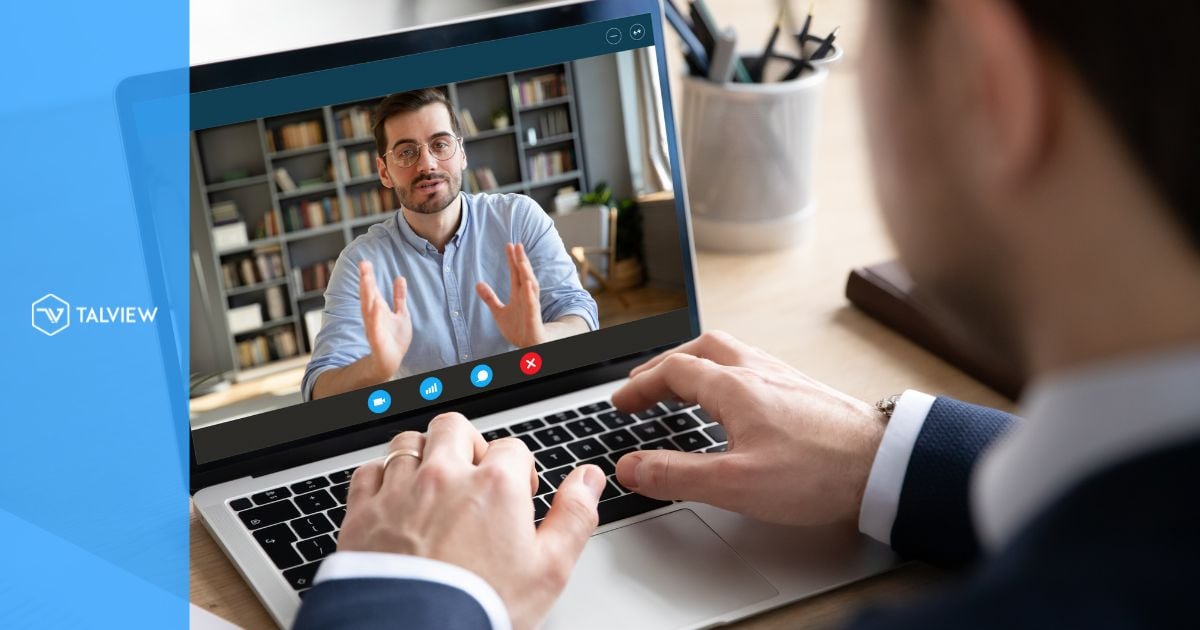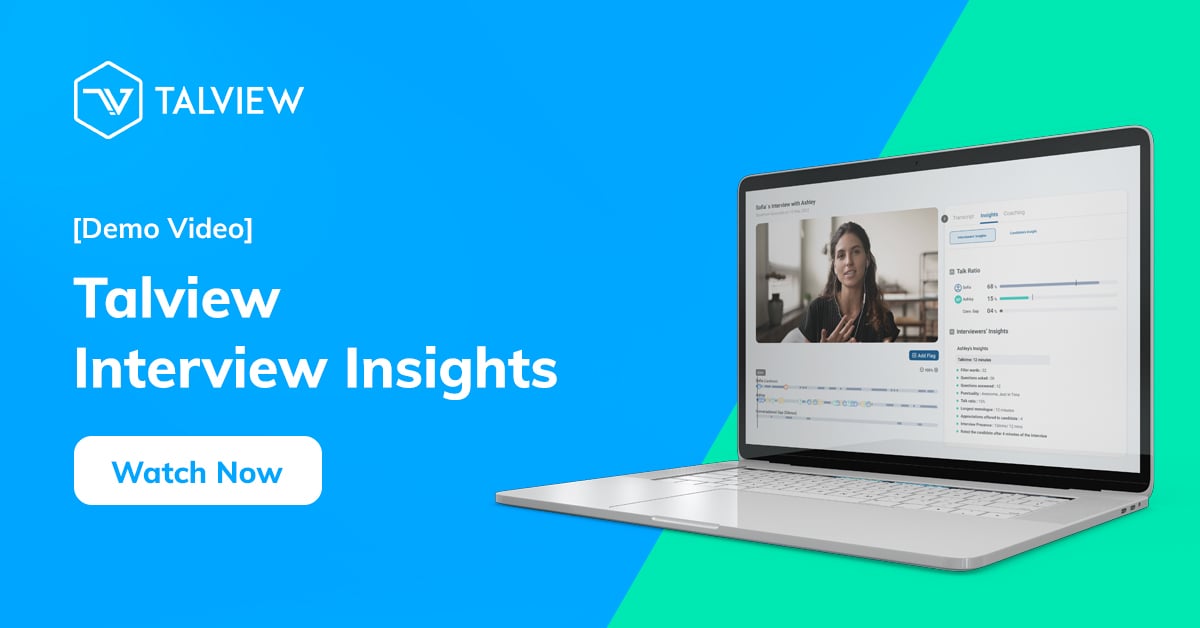The Interview Process is Flawed
A successful business results from the product, service, or solution offered and the people who work there. While the products, services or solutions have typically been the focus for most organizations, today, the people are increasingly recognized as a key element.
Businesses struggle to hire the right fit. One prominent reason seems to be an inconsistent, irrelevant, and inefficient interview process. The interview process frequently features schedules that clash, multiple unnecessary calls, a complete lack of collaboration within teams, unprepared and irrelevant questions, and an completely unstructured processes. This doesn't sit well with today's top, tech-savvy candidates who want a smooth, quick, and friendly experience that lets them show their best side to the organization.
So, what differentiates a good interview from a bad one and how does it affect a candidate’s view of the organization?
Also Read: Hacking The Interview Process: Why Interviewers Urgently Need Guidance
Leverage Interviews to Identify the Best Candidate
Interviews are a great way to gauge a candidate's potential beyond the resume. Let's face it, resumes can be faked. How often have you encountered the same strengths and weaknesses for a single role in multiple resumes? Candidates today are smart and have hacked ways to appear on top in your ATS (The JDs you post online help them). However, candidate interviews cannot be faked if done right.
Candidate interviews act as a fantastic filter that lets you gauge a candidate's fit, not just in terms of skills but also culturally and behaviorally. They also help you assess a candidate's potential on the job. For example, learnability is a vital skill required to excel in today's highly competitive world. Asking the right questions during the Interview can help you understand their learning potential. Conducting structured, efficient, and fair interviews is a vital first step. AI-powered interviewing tools can add an extra layer of analysis that helps you assess the quality of your hire.
While interviews act as a filter for you, they also help the candidates analyze your organization's culture. It helps them see if they would be able to thrive in your organization.
Why Does a Positive Impression Matter in Interviews?
We are not talking about the interviewer's impression of a candidate. We are talking about the impression the candidate gets about the interviewer, the organization, and the recruiting process as a whole. This can be significantly improved by providing a candidate with an efficient, pleasant, and conversational experience.
Per Recruiting Brief, 80–90% of talent say a positive or negative candidate experience can change their minds about a role or company. You don’t want to lose out on the best available talent because of a poor interview experience. In the age of Google and Glassdoor reviews it helps to ensure you provide a stellar experience throughout the talent lifecycle.
What Differentiates a Good Interview from a Bad One?
Understanding what a good interview looks like is crucial to assessing where your interview process is going wrong and tweaking your strategy to achieve maximum efficiency.
A good interview is highly collaborative: Everyone on the hiring team is aware of what is happening, and there is clear communication to ensure everyone's opinion is considered before hiring a potential candidate.
A good interview involves the right questions: Knowing what questions to ask is extremely important to ensure you understand the candidate properly. It helps gauge their skills, experience, behavioral, and cultural fit.
A good interview helps get in-depth insights: 'Gut-feeling' interviews should be a thing of the past. Truly great interviews are data-packed and help make informed decisions. They help analyze a candidate's responses through cutting-edge technology.
A good interview is unbiased: Bias in hiring has become commonplace today. However, a good interview process ensures no discrimination, be it race, age, gender, or ethnicity.
Also Read: 6 Problems with Today's Job Interview Process
What Is Interview Bias?
It is human nature to relate to others in one way or another. Be it in school or at the workplace, we tend to get closer to people whom we have something, if not a lot, in common. Often, when it comes to interviews, the interviewers look for familiarity or relatability, which leads to what is known as an unconscious bias.
In simple terms, unconscious bias is when interviewers let their personal judgment or liking drive their decisions. While going with the "feeling" seems harmless, it can increase the chances of hiring or rejecting a candidate for the wrong reasons.
Here are a few ways you can tackle interview bias and hire the best candidate:
- Train your interviewers to identify these biases. In many cases, as we mentioned, the interviewers aren't aware they are being biased. Knowing what constitutes a bias, what questions should be asked, and having a better understanding of the interview process through rigorous training can help reduce the bias significantly.
- Have a standardized, structured interview process. While this might sound hard, having a set of standard questions for each role can help the interviewers stay focused and ensure they do not stray from the topic.
- Have multiple people interview the candidate. We are not saying 'have ten rounds of interviews.' Having 2-3 people interview the candidate in two rounds can help ensure that, even if the bias occurred during one round, it could be corrected in the other round. It also ensures the candidate is thoroughly vetted and is the perfect fit for your organization.
- Interviewing today has gone remote. Organizations are rapidly adopting video interviewing software like Talview to help them hire smarter, faster, and better from anywhere in the world. Allow interviewers and the hiring team to record interviews and review it later, as and when they wish.
Build an Interview Process That Scales
Interviewers spend a LOT of time talking to candidates. With hundreds of candidates applying for the same position, fatigue is only natural. While this might not seem like a massive challenge for smaller organizations now, this tiny factor can make a huge difference when scaling up.
When a company decides to scale up its operations, one of the first things it does is hire more talent. Often, organizations rush into it and, sadly, make hiring mistakes that could have been avoided if only they had a proper strategy in place.
Here are a few tips for building a robust interview process that scales:
Make automation your best friend: Hiring can be exhausting. Leveraging automation in the recruitment process can do wonders for the candidate's experience as well as the recruiter's experience. Businesses can automate mundane tasks like interview scheduling.
Standardization to the rescue: Unstructured interviews are notorious for leading to bias. Having an interview framework and a standardized process throughout the organization can help ensure every candidate goes through the same process and make the entire process easier to conduct.
Leverage in-depth data insights: Quantifiable interviews are vital in ensuring fair, replicable, and accurate data-backed decisions. They also help you understand how your interviewers are performing, learn which part of your strategy is working and which isn't, and much more.
Talview Interview Insights
The interview is the most common part of the hiring process, but it has also been the biggest blind spot. Combining the power of digital interviewing with the best of AI technologies, Talview Interview Insights shines a light into the interview process, providing insights on the candidate AND interviewer performance.
- Measure the validity of every interview
- Gain insights on candidate & interviewer
- Provide continuous feedback to the interviewer to improve their skills
- Monitor for bias and interviewer conformance to achieve DEI goals
Talent Acquisition leaders need candidates to be assessed fairly and treated with the respect that positively reflects the organization’s values. Specific, descriptive, explainable, and prescriptive insights make Talview Interview Insights an indispensable addition to ensure a valid talent measurement process.








Leave a Reply